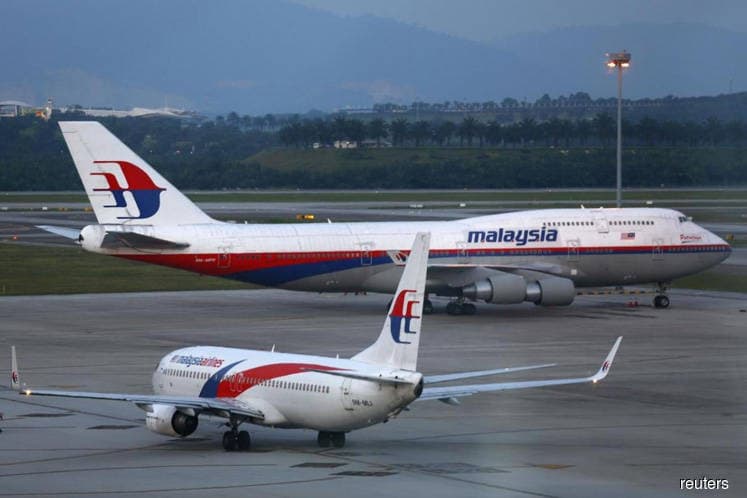
This article first appeared in The Edge Financial Daily on March 20, 2019
KUALA LUMPUR: A grouping of former Malaysia Airlines employees and retirees has offered its services to turn around the beleaguered flag carrier.
Maintaining that Malaysia still needs a national carrier, the 1,400-member Malaysia Airlines Retirees Association (Masra) warned that shutting it down will be a “huge embarrassment” to the country.
“If you ask me, we must have a national carrier. Almost every country in the world worth its salt has its own national carrier. If you were to close it, it will be a huge embarrassment,” its patron Tan Sri Abdul Aziz Abdul Rahman told a media briefing yesterday.
Abdul Aziz served 10 years at the former Malaysian Airline System Bhd (MAS) from its inception in 1971 as company secretary and director of legal affairs and to retiring in 1991 as chief executive officer and managing director.
He was commenting on Prime Minister Tun Dr Mahathir Mohamad’s recent remarks that the government is considering shutting down the loss-making Malaysia Airlines Bhd, selling the national asset or refinancing its debts.
“Of course, shutting it down is the easiest thing to do. That’s why we have now come forward to tell the government and everybody, ‘Please don’t close it. Whatever we do, we must sustain it and if possible, bring it back to the world-class level it was in years ago. We know we can do it’,” Abdul Aziz said.
The grouping’s confidence in turning around the airline stems from Malaysia Airlines which was known for developing first-class pilots and engineers, and a world-class service by the cabin crew.
“We do not know [which option] the government will choose, but we are open [to giving our advice]. If they call us, we will discuss with them. We don’t have money, but we can raise them. Among us, we have all the expertise [to run an airline],” Abdul Aziz said. “We (retirees) cannot run, but we can give advice,” he added, drawing laughter from the other members.
Former MAS executive vice-president for group finance S Suppiah concurred. “The airline business is not just about moving people and goods. [At Malaysia Airlines,] we have engineering, catering, ground handling and cargo operations. All these businesses that we had were highly profitable [back then]. Today, everybody is eyeing a slice of these businesses, but [Masra thinks] it is unfair to take it away from Malaysia Airlines,” he said.
“Why? Because it is not easy to set up all these operations. Take the maintenance, repair and operations (MRO) business — you must have at least 11 aircraft of one type before you can start your own MRO operations or else you won’t have economies of scale.
“Secondly, if you outsource this service to third-party MRO providers, you will be exposed to the US dollars. If you do it at home, it is all [denominated] in ringgit except for [procuring] spare parts.
“[Back then,] we optimised our [MRO] facility. Whenever we had empty slots, we performed maintenance services for other airlines and that helped reduce the overall cost of that operations and this was highly profitable as our MRO labour rates were competitive. For example, our cost would be US$40 per man hour compared with US$50 to US$100 per man hour in the Middle East and Europe,” Suppiah added.
He recalled “our on-time arrival performance (OTP) was at 99%”. On March 1, Malaysia Airlines reported its OTP improved 2% year-on-year in 2018, with the highest monthly OTP at 83%.
“In terms of flight operations, we have produced world-class pilots. Our pilots are all over the world right now, but flying with other airlines. They (foreign airlines) acknowledged that MAS pilots are one of the best-trained because of the structured training that we have,” according to Suppiah.
Former MAS vice-president of engineering Sitham Nadarajah said the airline had previously invested “millions” in flight simulators to train its pilots, and also for its pilots to train their foreign peers.
“Today, our pilots are highly recognised, flying with foreign airlines such as Singapore Airlines, Emirates, Korean Air and China Airlines, and contributing to the economy of those countries,” said Sitham.
“Back then, our engineering unit had over 30 regulatory approvals from countries such as Japan, China, the US and Europe. We had huge savings doing everything in-house and we also earned foreign exchange when we were doing work for other parties.
“Regretfully, this is now no more. Today, we have lost all our foreign approvals. We cannot do [MRO] work for foreign airlines. Even more upsetting — Malaysia Airlines aircraft are now sent to Singapore and Indonesia for maintenance work.
“We, MAS retirees and the people who started MAS, feel it is only fair that we share our experiences, provide our views and assist to restore MAS’ glory days. It is a challenge, but we are prepared to do so,” he added.
On how Masra would help overhaul the national carrier, Abdul Aziz said firstly, it has to disclose its entire financial accounts — useful information for it to advise MAS’ management on what to do. “We have not consulted anybody [in the government or parent Khazanah Nasional Bhd] because we do not know what they want.”
However, Abdul Aziz said the airline’s structure must be looked into. “How can a business venture still lose billions after four years? With a load factor at 78% [for 2018], Malaysia Airlines should be profitable. Thus, we have to see what are its liabilities.”
Abdul Aziz viewed that a way the airline could be saved would be through a joint venture between the government and the private sector, but stressed the government must firstly decide whether it wants to retain Malaysia Airlines.